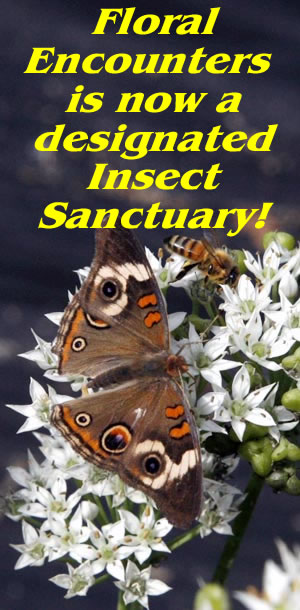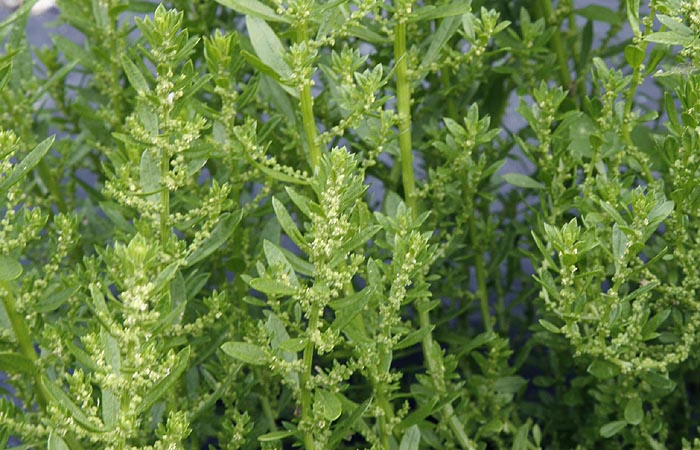Strongly aromatic plant mostly grown as an annual. Extremely drought tolerant and likes full sun. Takes very little maintenance once established and deer and rabbits don't eat it. Grown mainly for the leaves makes good ground cover and excellent herb for Mexican cookery.
Description of Epazote (Dysphania ambrosioides or Chenopodium_ambrosioides).
Grown as an annual it may behave as a perennial in some warmer locations. The plant produces small spear shaped leaves in mid to lighter green that have gentle scalloped edges and veins that look as if they are semi melted into the leaf surface. Leaves are arranged alternately on the upright stems. Flowers are produced on their own small stems with tiny leaves interspersed that arise from the leaf nodes. The flowers are extremely small, white or pale green and mostly insignificant, seen only as 'small bobbly bits' that create more bulk to the plant stems. Flowers in mid to late summer. Stems can grow to 48 inches tall but may tend to flop over in windy areas. The leaves have an extremely strong and unique aroma that is very difficult to describe. Some have tried with a mixture of citrus, petroleum, savory, mint and camphor. For this reason most animals do not eat the plant to its definitely deer and rabbit resistant.
Growing Epazote (Dysphania ambrosioides or Chenopodium_ambrosioides) from seed.
In warmer areas seed can be strewn on the surface and kept moist until germination. However since the seeds are small indoor seed starting is recommended. Sow in cell packs, plug trays or flats and barely cover the seed. Keep moist until the germinate which can be 7-21 days depending on conditions. Keep the seeds warm, around 70° F is ideal and warm window ledge or sunny spot is best. Transplant to individual pots when the seedling are large enough to handle and harden off before planting out. For more detailed information on starting seed see our General Growing Instructions.
Space plants at 6 -8 inches apart and water well until established then leave alone. If grown for constant harvesting some daily water is recommended to ensure a good continuous crop of leaves. Pinching the plant back will encourage side branches and more leaves. Can become quite bushy with a little pinching and makes a good low growing bright green foliage. Stems can reach 48" in height but may tend to flop over in windy areas. This will cause them to grow more side branches and look like shorter plants so no maintenance is needed if grow as a ground cover.
Caution. In warmer climates it will self seed readily and can become a weed if not controlled. Cut down stems after flowering to prevent seed dispersal. In higher zones seeds tend not to overwinter that well and replanting is necessary.
A strong tea rubbed on the skin repels insects and reduces irritation from insect bites. In sufficient dosage, and especially if the seeds are taken by themselves, the plant will aid in expulsion of intestinal worms.









